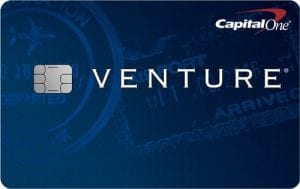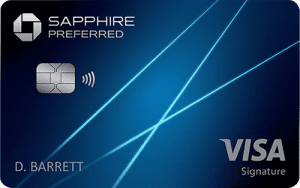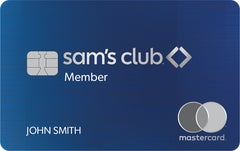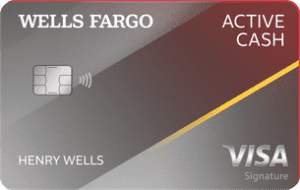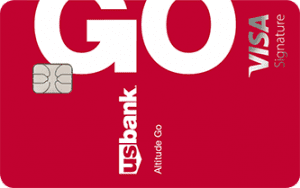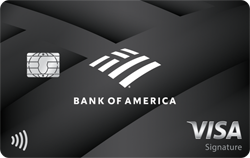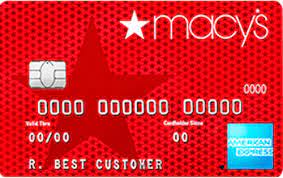Rewards credit cards are cards that actually pay you a predetermined percentage of the amount of every transaction you have. These cards come in two main options, either cash back or travel cards.
Trave cards give you points, or miles, for every dollar you spend. These rewards can be used to pay for flights, hotel stays, car rentals, and other travel related purchases.
Cash back cards give you a percentage of every purchase in the form of cash, hence the name cash back credit card.
These types of credit cards make up over 60 percent of all the credit card offers on the market. The cashback cards make up over 30 percent of offers and 63 percent are points or miles cards.
When you go looking for the best rewards card, you will soon find that there are a lot of options out there to choose from. This is why we have gathered together information for the best reward credit cards available.
Here are The Smart Investor Select’s picks for the top rewards credit cards:
Card | Rewards | Bonus | Annual Fee | Best For |
|
1-6%
6% cash back at U.S. supermarkets (up to $6,000 per year in purchases, then 1%) and selected U.S. streaming subscriptions, 3% cash back on transit
and U.S. gas stations, 1% cash back on other purchases | $250
$250 statement credit after you spend $3,000 in purchases on your new Card within the first 6 months
| $95 ($0 intro for the first year) | Everyday Spending |
|---|---|---|---|---|---|
| 1.5X
1.5 points for every $1 you spend on all purchases everywhere, every time and no expiration on points
| 25,000 points
25,000 online bonus points after you make at least $1,000 in purchases in the first 90 days of account opening – which can be redeemed for a $250 statement credit toward travel purchases
| $0 | No Annual Fee | |
| 2X – 5X
2X miles per dollar on every purchase, plus 5X miles on hotels and rental cars booked through Capital One Travel
| 75,000 miles
75,000 miles once they spend $4,000 on purchases within 3 months from account opening
| $95 | Travel Experience | |
| 2X – 5X
5x total points on travel purchased through Chase Travel, 3x points on dining, online grocery purchases and select streaming services. 2x on other travel purchases. Plus, earn 1 point per dollar spent on all other purchases. | 60,000 points
60,000 bonus points after you spend $4,000 on purchases in the first 3 months from account opening
| $95 | Value for Money | |
| 1x – 6X
6X points for every $1 spent at over 7,000 hotels participating in Marriott Bonvoy® with the Marriott Bonvoy Boundless® credit card. Plus, earn up to 10X points from Marriott for being a Marriott Bonvoy® member. Plus, earn up to 1X point from Marriott with Silver Elite Status. Earn 3X points for every $1 on the first $6,000 spent in combined purchases each year on grocery stores, gas stations, and dining. Earn 2X points for every $1 you spend on all other purchases.
| 3 Free Nights
3 Free Nights (each night valued up to 50,000 points) after you spend $3,000 on purchases in your first 3 months from your account opening
| $95 | Hotel Rewards | |
| 1-5%
5% cash back on gas anywhere Mastercard is accepted (on the first $6,000 per year, then 1% after), 3% cash back on Sam’s Club purchases for Plus members, 3% on dining and takeout and 1% on all other purchases
| None | $0 ($50/$110 for Club/Plus membership – MUST) | Store | |
| 2%
2% cash rewards on purchases (unlimited)
| $200
$200 cash rewards bonus when you spend $500 in purchases in the first 3 months
| $0 | Flat Rate Cashback |
American Express® Gold Card
Reward details
Current Offer
Credit Rating
Annual Fee
0% Intro
APR
Rates & Fees, Terms Apply
- Overview
- Card Features
- Pros & Cons
- FAQ
The American Express® Gold Card is a credit account that offers a myriad of benefits to clients. First-timers stand a chance to earn 60,000 Membership Rewards® Points after you spend $6,000 on eligible purchases with your new Card within the first 6 months of Card Membership. In terms of rewards, you can earn 4X points at restaurants (including Uber Eats purchases in the U.S.) and U.S. supermarkets (up to $25,000 per year in purchases, then 1X points), 3X points on flights booked directly with airlines or on amextravel.com, 2X points on rental cars through amextravel.com and 1X points on all other purchases.
Other premium benefits include dedicated service team, up to $120 in Uber Cash (enrollment required), preferred seating at sporting and cultural events, signature perks at upscale hotels, fraud Protection and baggage insurance for up to $500 for checked baggage and $1,250 for carry on.
- APR: 21.24% – 29.24% Variable
- Annual fee: $250
- Balance Transfer Fee: N/a
- Foreign Transaction Fee: None
- Rewards Plan: 4X points at restaurants (including Uber Eats purchases in the U.S.) and U.S. supermarkets (up to $25,000 per year in purchases, then 1X points), 3X points on flights booked directly with airlines or on amextravel.com, 2X points on rental cars through amextravel.com and 1X points on all other purchases
- Welcome Bonus: 60,000 Membership Rewards® Points after you spend $6,000 on eligible purchases with your new Card within the first 6 months of Card Membership
- 0% APR Introductory Rate period: N/A
- Welcome Bonus + Premium Point Rewards Rate
- No Foreign Transaction Fees
- Special Gold Status Perks
- $250 Annual Fee
- High Requirements
- Is there a limit to rewards? There is a cap on getting the premium rate of cashback on certain types of purchases.
- Can I get car rental insurance with Amex Gold Card? Yes, you will get it automatically once you decline the car insurance from the rental company and you pay the full rental charge using this card.
- What are Amex Gold Card income requirements? There is no out and out income requirement outlined by Amex when it comes to the Gold card.
- Does card Amex Gold points expire? They do not have an expiration date.
- How do I redeem cash back on Amex? There is a points-based system. You can redeem the points for a variety of rewards that are showcased on the Amex website. These include statement credit, gift cards, paying for certain services etc.
- What purchases don't earn rewards? The minimum rate is 1 point for every $1 spent.
- Should You Move to Amex Gold Card? If you need a versatile card that covers a wide range of purchases, with a main focus on travel-related purchases and perks.
- Why did Amex deny me? You might not have met one of the requirements. You can ask the customer support team if there is something you can do to change this eventuality. Otherwise, you can look for an alternative card.
- How to maximize rewards on Amex Gold Card? Use it for a versatile range of purchases, make sure you are aware of the different perks and credit that you get with this card.
- Top Reasons NOT to get the Gold Card? If you do not travel a lot.
- Can I get pre-approved? Yes, you can get pre-approval.
- What is the initial credit limit? The credit limit will usually be at least $5,000.

Bank of America® Travel Rewards credit card
Reward details
Current Offer
Credit Rating
Annual Fee
0% Intro
APR
- Overview
- Features
- Pros & Cons
- FAQ
The Bank of America® Travel Rewards credit card is a good option for frequent travelers looking for travel rewards, especially if you're an existing customer of Bank of America. It offers a $0 annual fee while customers can use when they travel to earn points and gain rewards. To gain access to this card, you will need a solid credit score of between 680 to 850.
The Bank of America® Travel Rewards offers a agin up bonus of 25,000 online bonus points after you make at least $1,000 in purchases in the first 90 days of account opening – which can be redeemed for a $250 statement credit toward travel purchases, and you can use for purchases and other travel expenses. You're also not limited when you want to make travel arrangements as the card grants you flexibility.
- APR: 18.24% – 28.24% Variable APR will apply.
- Annual fee: $0
- Balance Transfer Fee: 3% or $10 (the greater)
- Foreign Transaction Fee: $0
- Rewards Plan: 1.5 points for every $1 you spend on all purchases everywhere, every time and no expiration on points
- Sign Up bonus: 25,000 online bonus points after you make at least $1,000 in purchases in the first 90 days of account opening – which can be redeemed for a $250 statement credit toward travel purchases
- 0% APR Introductory Rate period: 15 billing cycles on purchases and balance transfers
- Point Sign-Up Bonus
- Point Rewards
- No Annual Fee
- No Foreign Transaction Fee
- Preferred Rewards, No Expiration
- Minimum Redemption
- There are Better Rewards Cards
- Good – Excellent Credit Needed
- Limited Travel Protections
- Is there a limit to rewards/cash back on the Bank of America Travel Rewards Card? There is no cap.
- Can I get car rental insurance with Bank of America Travel Rewards Card? how? Yes it offers rental insurance for cars if you pay for the full cost with this credit card and you decline the rental company’s insurance.
- Does Bank of America ask for proof of income? No out and out income requirement and you do not always have to provide proof of income.
- Does the card offer pre approval? Yes, pre-approval is an option
- What is the initial credit limit ? The smallest credit limit for this card iwll usually be $500.
- How do I redeem cash back ? You are able to redeem these points as statement credit to pay for the likes of travel and dining purchases or you can redeem as cash or in the form of gift cards.
- Should You Move to Bank of America Travel Rewards Card? If you travel frequently and will use the rewards on travel-related purchases.
- The bank denied my request, What's now?? Perhaps you did not meet all of the requirements. You can ask the customer service team what you need to do to get accepted or you can look at other card options.
- How to maximize rewards? Redeem the points for travel-related or dining purchases, maximize the signup offer, and use in conjunction with another card.
- When you shouldn't get the Bank of America Travel Rewards Card? If you do not travel a lot.
Delta SkyMiles® Platinum American Express Card
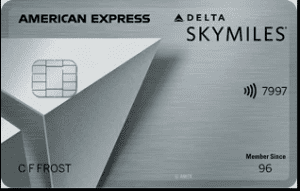
Delta SkyMiles® Platinum American Express Card
Reward details
3X Miles on Delta purchases and purchases made directly with hotels, 2X Miles at restaurants worldwide including takeout and delivery in the U.S., and at U.S. supermarkets and 1X Miles on all other eligible purchases
Current Offer
Credit Rating
Annual Fee
0% Intro
APR
- Overview
- Features
- Pros & Cons
- FAQ
The Delta SkyMiles® Platinum American Express Card is a premium airline credit card catering to frequent Delta flyers. While it comes with a $350 annual fee, the card offers substantial perks for Delta enthusiasts. Cardholders earn 3X Miles on Delta purchases and purchases made directly with hotels, 2X Miles at restaurants worldwide including takeout and delivery in the U.S., and at U.S. supermarkets and 1X Miles on all other eligible purchases
Key benefits include a free checked bag on Delta flights for the cardholder and up to eight companions, priority boarding, statement credit of up to $100 for Global Entry or TSA PreCheck enrollment, an annual companion certificate after the first card member anniversary, and no foreign transaction fees.
However, prospective cardholders should carefully weigh the annual fee against the offered perks and assess their travel habits to determine if the card aligns with their needs and preferences.
- Rewards Plan: 3X Miles on Delta purchases and purchases made directly with hotels, 2X Miles at restaurants worldwide including takeout and delivery in the U.S., and at U.S. supermarkets and 1X Miles on all other eligible purchases
- APR: 20.99%-29.99% Variable
- Annual fee: $350
- Balance Transfer Fee: N/A
- Foreign Transaction Fee: $0
- Welcome bonus: 50,000 bonus miles after you spend $3,000 in your first six months
- 0% APR Introductory Rate: N/A
- Airline Benefits
- Annual Companion Certificate
- Travel and Purchase Protections
- Earn MQDs to boost elite status
- No Delta Sky Club Access Discount
- Uncertain Award Redemption Value
- High Annual Fee
Are there restrictions on using the annual companion certificate?
The annual companion certificate is valid for round-trip, main cabin domestic travel in specific fare classes, excluding basic economy tickets.
Are Delta SkyMiles transferable to other airline programs?
Delta SkyMiles are not easily transferable to other airline programs, and their value may vary compared to other transferable points.
Can the companion certificate be used for any Delta flight?
The companion certificate is valid for round-trip, main cabin domestic travel but is subject to certain fare class restrictions.
How can the earned Delta SkyMiles be redeemed?
Delta SkyMiles can be redeemed for flights with Delta and its partner airlines, as well as for various other travel-related purchases.
Can the first checked bag benefit be extended to companions on separate reservations?
The first checked bag benefit applies to the cardholder and up to eight companions on the same reservation.
Is there a Delta Sky Club access discount?
No, the Delta Sky Club access discount has been discontinued as of January 1, 2024.
What travel protections are offered by the Delta SkyMiles Platinum Amex Card?
Cardholders receive trip delay coverage, car rental damage coverage, and lost baggage coverage, among other travel protections.

U.S. Bank Altitude® Go Visa Signature®
Reward Details
Current Offer
Credit Rating
Annual Fee
0% Intro
APR
- Overview
- Card Features
- Pros & Cons
- FAQ
The U.S. Bank Altitude® Go Visa Signature® Card is an excellent rewards option for individuals seeking everyday purchase benefits.
Cardholders have the opportunity to accrue 4x points at restaurants, take-outs & deliveries, 2x points at supermarkets, gas stations & streaming servicesm and 1 point for 1 dollar on all other purchases with points that carry no expiration date and can be redeemed as statement credits or deposited into the account once it reaches 2,500 points, with the flexibility of redemption while the account is open.
Enjoy a 0% introductory APR on both purchases and balance transfers for 12 billing cycles on purchases and balance transfers, followed by a variable APR within the range of 18.24% – 29.24% (Variable). Additionally, there are no annual fees, and transactions with international merchants incur zero charges.
- APR: 18.24% – 29.24% (Variable)
- Annual fee: $0
- Balance Transfer Fee: 3%
- Foreign Transaction Fee: $0
- Rewards Plan: 4x points at restaurants, take-outs & deliveries, 2x points at supermarkets, gas stations & streaming servicesm and 1 point for 1 dollar on all other purchases
- Sign Up bonus: 20,000 bonus points when you spend $1,000 in eligible purchases within the first 90 days of account opening
- 0% APR Introductory Rate period: 12 billing cycles on purchases and balance transfers
- High Rewards Rate & Sign Up Bonus
- No Annual Fee
- 0% Intro
- No Points Expiration
- High Credit Needed
How much is 10,000 points worth?
Points are available on the Altitude Go, and they are typically worth 1.5 cents each. This means that depending on your redemption method, 10,000 points could be worth $150.
Is it good credit card?
Given that the card has no annual fee, it provides some decent rewards. They are worth serious consideration if you are looking for an everyday card without having to worry about hefty annual fees.
Does the altitude card offer pre approval?
Pre-approval is available at US Bank, but only for offers received via email or mail. Furthermore, if you are an existing customer, you may receive a pre-approved offer via your online account. There is no online tool for interested potential customers to use to check the status of their pre-approval. When you complete the online application form, you are submitting a complete application, which will include a hard credit pull.
What are the card income requirements?
The Altitude Go card requires excellent credit, but one of the most important factors for U.S Bank is your credit rating rather than your income status.
Do the reward points expire?
You don’t need to worry about expiry dates. U.S Bank clearly states that the points for the Altitude Go card never expire.
Capital One Venture Rewards Credit Card
Reward details
Current Offer
Credit Rating
Annual Fee
0% Intro
APR
- Overview
- Features
- Pros & Cons
- FAQ
The Capital One Venture Rewards is a low-cost travel card that worth’s its value. It allows you to earn rewards and bonus points while traveling for business, leisure, or pleasure. However, it requires holders to have a credit score of between 680 and 850.
The rewards plan includes 2X miles per dollar on every purchase, plus 5X miles on hotels and rental cars booked through Capital One Travel . The card attracts no annual fees, and you can get a sign up bonus of 75,000 miles once they spend $4,000 on purchases within 3 months from account opening.
- APR: 19.99% – 29.99% (Variable)
- Annual fee: $95
- Balance Transfer Fee: N/A
- Foreign Transaction Fee: $0
- Rewards Plan: 2X miles per dollar on every purchase, plus 5X miles on hotels and rental cars booked through Capital One Travel
- Sign Up bonus: 75,000 miles once they spend $4,000 on purchases within 3 months from account opening
- 0% APR Introductory Rate period: N/A
- Flexible Rewards Redemption
- Great Sign-Up Bonus
- No Blackout/Expiration Dates
- No Accumulation Limit on Miles
- High Variable APR
- Airline Partners Limitations
- $95 Annual Fee
- Redeem Points for a Statement Credit
- What are Capital One Venture card income requirements? Capital One often required monthly income to be at least $800. Sometimes, you will need to show some proof of income.
- Does rewards points expire? They do not expire.
- Can I get pre-approved on card Capital One Venture Card? Yes, you can get pre-approval.
- What is the initial credit limit ? The minimum credit limit is set at $5,000.
- How do I redeem cash back? You can do so in a number of ways, such as spending your accumulated miles directly on travel purchases, or redeem as cash, using at participating retailers, and so on.
- What purchases don't earn cash back with the Capital One Venture Card? Every purchase earns cashback.
- Should You Move to Capital One Venture Card? If you spent a decent amount of time and money on travel expenses.
- Why did Capital One Venture Card deny me? What to Do Next? You might not have met all of the requirements. You can enquire as to where your application fell short. If you cannot proceed, you can look at some of the other available options.
Chase Sapphire Preferred® Card
Reward details
Current Offer
Credit Rating
Annual Fee
0% Intro
APR
- Overview
- Features
- Pros & Cons
- FAQ
The Chase Sapphire Preferred® Card is a travel rewards card issued by Chase Bank. This is a very popular travel rewards card because it offers a large sign-up bonus and the card is built around traveling. Many travel rewards cards have higher annual fees for the same kind of rewards. The card offers a sign-up bonus of 60,000 bonus points after you spend $4,000 on purchases in the first 3 months from account opening.
This card is on our top spot in regards to the best traveling and dining cards as they offer you more points compared to other cards – 5x total points on travel purchased through Chase Travel, 3x points on dining, online grocery purchases and select streaming services. 2x on other travel purchases. Plus, earn 1 point per dollar spent on all other purchases. .
- Rewards Plan: 5x total points on travel purchased through Chase Travel, 3x points on dining, online grocery purchases and select streaming services. 2x on other travel purchases. Plus, earn 1 point per dollar spent on all other purchases.
- APR: 21.24%–28.24% variable APR
- Annual fee: $95
- Balance Transfer Fee: 5% or $5, whichever is greater
- Foreign Transaction Fee: $0
- Sign Up bonus: 60,000 bonus points after you spend $4,000 on purchases in the first 3 months from account opening
- 0% APR Introductory Rate: N/A
- Point Sign-Up Bonus
- Bonus Points
- No Blackout Dates
- 25% More through Ultimate Chase Rewards
- No Foreign Transaction Fee
- $95 Annual Fee
- Low Merchandise Rewards
- No Introductory 0%
- Balance Transfer Fee – 5% or $5, whichever is greater
- Does the travel rewards points expire? Your points won’t expire once you keep the credit card account open.
- Does card Chase Sapphire Preferred offer pre-approval? Yes, you are able to pre-qualify for this card.
- What is the initial credit limit? The minimum credit limit that you can get with this card type is usually $5,000.
- How do I redeem cash back? You can redeem your points in a variety of ways through the Chase credit card reward portal. Some of the perks you can get include cash, travel credit, statement credit, and gift cards.
- What purchases don't earn cash back? All purchases will earn cashback through this card.
- Should You Move to Chase Sapphire Preferred card? If you travel frequently and do not want to pay a large annual fee.
- Why did the Chase deny me? You might not have met one of its requirements. You will usually find out where you fell short. You might be able to rectify the issue or you might have to look elsewhere.
- How hard is it to get a Chase Sapphire Preferred card? If you meet all of the requirements, then it is relatively straightforward to get a Chase Sapphire Preferred card. The requirements are easier compared to Chase Sapphire Reserve card.
- Is there a limit to rewards/cash back on the Chase Sapphire Preferred card? No limit
- Can I get car rental insurance with a Chase Sapphire Preferred card? how? Yes, you can get car rental insurance with this card if you decline the collision cover of the rental company and pay for the entire cost of the rental car with this card.

Marriott Bonvoy Boundless® Credit Card
Reward details
Current Offer
Credit Rating
Annual Fee
0% Intro
APR
- Overview
- Features
- Pros & Cons
If you're using Marriot frequently or looking for a decent hotel rewards card, the Marriott Bonvoy Boundless® Credit Card may be a perfect match for your needs.
It offers 6X points for every $1 spent at over 7,000 hotels participating in Marriott Bonvoy® with the Marriott Bonvoy Boundless® credit card. Plus, earn up to 10X points from Marriott for being a Marriott Bonvoy® member. Plus, earn up to 1X point from Marriott with Silver Elite Status. Earn 3X points for every $1 on the first $6,000 spent in combined purchases each year on grocery stores, gas stations, and dining. Earn 2X points for every $1 you spend on all other purchases. and a very attractive sign up bonus of 3 Free Nights (each night valued up to 50,000 points) after you spend $3,000 on purchases in your first 3 months from your account opening.
However, the card charges $95 annual fee and doesn't offer 0% intro.
- Rewards Plan: 6X points for every $1 spent at over 7,000 hotels participating in Marriott Bonvoy® with the Marriott Bonvoy Boundless® credit card. Plus, earn up to 10X points from Marriott for being a Marriott Bonvoy® member. Plus, earn up to 1X point from Marriott with Silver Elite Status. Earn 3X points for every $1 on the first $6,000 spent in combined purchases each year on grocery stores, gas stations, and dining. Earn 2X points for every $1 you spend on all other purchases.
- APR: 21.49%–28.49% variable
- Annual fee: $95
- Balance Transfer Fee: $5 or 5%
- Foreign Transaction Fee: $0
- Sign Up bonus: 3 Free Nights (each night valued up to 50,000 points) after you spend $3,000 on purchases in your first 3 months from your account opening
- 0% APR Introductory Rate period: None
- Sign-up bonus of points:
- Sign-Up Bonus
- Annual Reward
- Ongoing Points Rewards
- Transfer to Airline Points
- Automatic Silver Status
- Chase Restrictions
- Confusing Rewards
- Annual Fee
- No 0% Intro
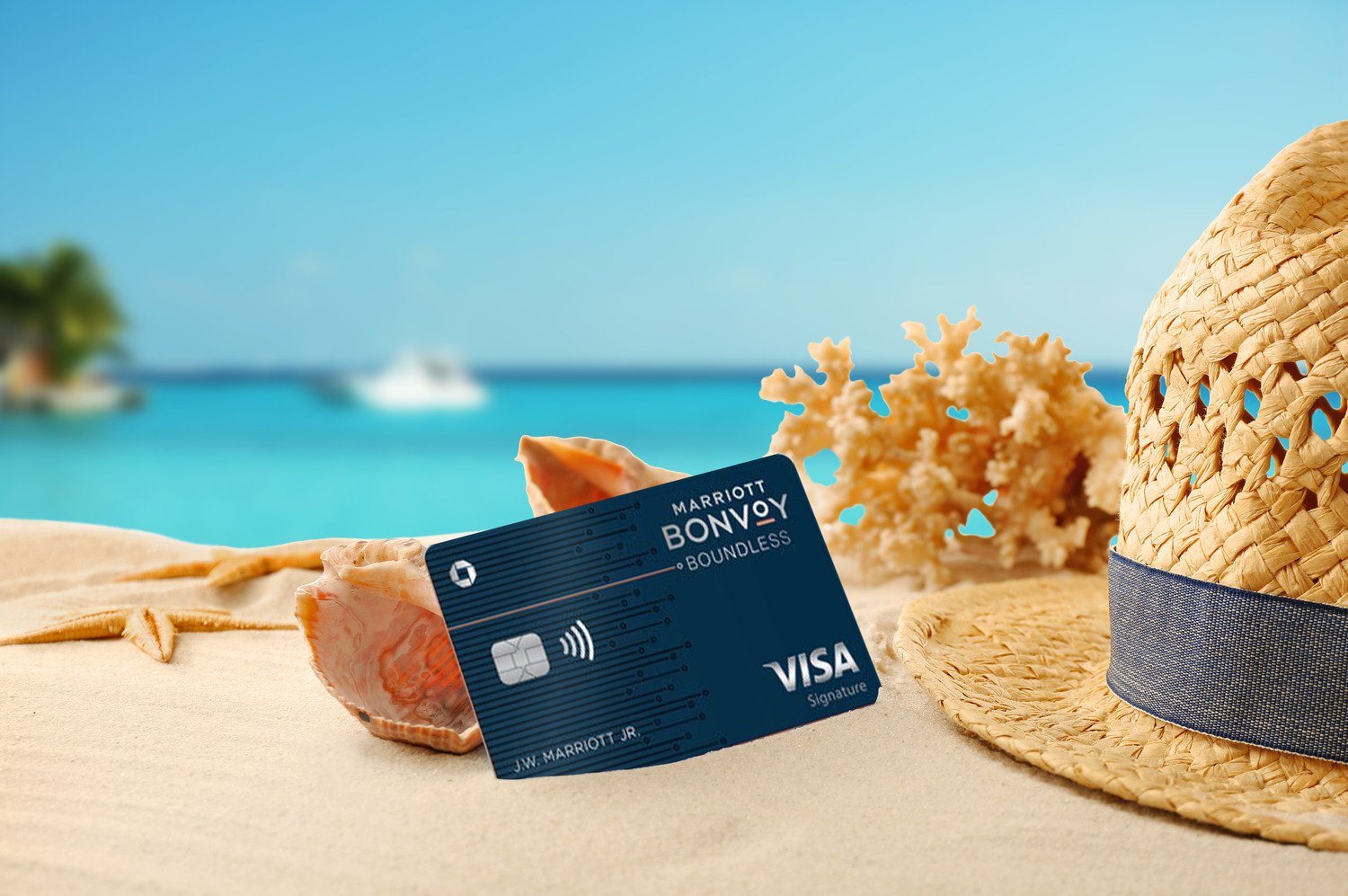
Bank of America® Premium Rewards® credit card
Reward details
Unlimited 2X points on travel and dining purchases. Unlimited 1.5X points on all other purchases
Current Offer
60,000 online bonus points for spending $4,000 on new purchases in the first 90 days of opening their card account.
Credit Rating
Annual Fee
0% Intro
APR
- Overview
- Card Features
- Pros & Cons
- FAQ
The Bank of America® Premium Rewards® credit card is a mid-level rewards card offering modest benefits with a $95 annual fee. The card earns Unlimited 2X points on travel and dining purchases. Unlimited 1.5X points on all other purchases, with a welcome offer of 60,000 online bonus points for spending $4,000 on new purchases in the first 90 days of opening their card account..
The $95 annual fee can be offset by up to $100 in statement credits for airline incidentals and a $100 Global Entry/TSA PreCheck® application fee credit. However, the highest rewards rates require a significant savings balance, and the travel benefits are not as competitive as other premium cards.
The card's rewards redemption options include travel, cash back, or gift cards, with points valued at 1 cent each.
- APR: 18.24% – 28.24% variable APR on purchases and balance transfers
- Annual fee: $95
- Balance Transfer Fee: 3% or $10 (the greater)
- Foreign Transaction Fee: 3%
- Rewards Plan: unlimited 1.5% cash back on all purchases
- Sign Up bonus: $200 online cash rewards bonus after making at least $1,000 in purchases in the first 90 days of your account opening
- 0% APR Introductory Rate period: 18 billing cycles for purchases, 60 days on balance transfers
- 0% intro APR
- No Foreign transaction fee
- Rewards & Sign up Bonus
- There are better rewards cards
- Balance transfer fee
- Annual fee
Is the Bank of America® Premium Rewards® card right for me?
The card is ideal for financially established Bank of America or Merrill account holders seeking modest rewards and enhanced benefits.
How can I redeem points with the Premium Rewards card?
Points can be redeemed for travel, cash back, gift cards, or deposited into eligible Bank of America or Merrill accounts.
How do I qualify for Preferred Rewards rates on the Premium Rewards card?
Preferred Rewards rates require minimum three-month average balances of $20,000 (Gold), $50,000 (Platinum), or $100,000 (Platinum Honors) in Bank of America accounts.
How much are Premium Rewards points worth?
Points have a fixed value of 1.0 cents each, regardless of the redemption method.
What travel insurance does the Premium Rewards card provide?
The card offers trip delay, trip cancellation, baggage delay, and lost baggage coverage, among other benefits.
Is the Premium Rewards card suitable for everyday spending?
It can be, especially for Preferred Rewards members, but there are higher-earning options at the same price point.
U.S. Bank Altitude Connect
Reward details
Current Offer
Credit Rating
Annual Fee
0% Intro
APR
- Overview
- Card Features
- Pros & Cons
- FAQ
This U.S. Bank Altitude Connect Visa Signature Card caters to a diverse range of spending categories, such as groceries, dining, and travel, making it versatile for different lifestyles. It offers 5X points on prepaid hotels and car rentals booked directly in the Altitude Rewards Center; 4X points on travel, gas stations, and EV charging stations; 2X points on grocery stores, grocery delivery, dining, and streaming services; and 1X points on all other eligible purchases.
Noteworthy perks of the U.S. Bank Altitude Connect include an annual streaming credit, airport lounge access, cellphone protection, and reimbursement for TSA PreCheck® or Global Entry® application fees. The card provides flexibility in point redemption options, offering a penny per point for travel, cash back, merchandise, and gift cards.
While the card excels in various aspects, it does come with a $95 annual fee after the introductory period, and it lacks the option to transfer points for maximized value.
- APR: 20.24% – 28.24% (Variable)
- Annual fee: $95 (waived first year)
- Rewards Plan: 5X points on prepaid hotels and car rentals booked directly in the Altitude Rewards Center; 4X points on travel, gas stations, and EV charging stations; 2X points on grocery stores, grocery delivery, dining, and streaming services; and 1X points on all other eligible purchases
- Balance Transfer Fee: 3% or $5, whichever is greater
- Foreign Transaction Fee: $0
- Sign Up bonus: 60,000 points after spending $6,000 in eligible purchases on the account owner's card within the first 180 days from account opening
- 0% APR Introductory Rate period: N/A
- High Rewards Ratio
- Airport Lounge Access
- Redemption Options
- Cell phone protection
- Annual Fee
- No Point Transfers
How can I redeem the points earned with the U.S. Bank Altitude Connect?
Points can be redeemed for travel, cash back, merchandise, and gift cards, with each point worth a penny.
What is the cell phone protection offered by the card?
The card offers cellphone protection with reimbursement of up to $600 for damage, theft, or involuntary parting with the eligible cellphone.
Is there a credit for TSA PreCheck® or Global Entry® application fees?
Yes, cardholders can receive up to $100 in statement credits every four years for reimbursement toward TSA PreCheck® or Global Entry® application fees.
Is there a limit on the number of points I can earn?
There is no specified cap on the amount of points you can earn, providing potential for unlimited rewards accumulation.
Can I transfer points from the U.S. Bank Altitude Connect Visa Signature Card to other loyalty programs?
No, the card does not allow the transfer of points to other loyalty programs, limiting redemption options.
The Wells Fargo Active Cash℠ Card
Reward details
Current Offer
Credit Rating
Annual Fee
0% Intro
APR
- Overview
- Features
- Pros & Cons
- FAQ
The Wells Fargo Active Cash Card does not charge any annual fee and stands out by it offers. You can earn 2% cash rewards on purchases (unlimited) on every purchase you make with this card, as well as a decent bonus for a card with no annual fee and an introductory 0% APR with a cash bonus.
Wells Fargo also offers built in protections against unauthorized transactions with additional security features such as Voice verification.
- Rewards Plan: 2% cash rewards on purchases (unlimited)
- APR: 20.24% to 29.99% variable APR
- Annual fee: $0
- Balance Transfer Fee: $5 or 5% (the greater)
- Foreign Transaction Fee: 3%
- Sign Up bonus: $200 cash rewards bonus when you spend $500 in purchases in the first 3 months
- 0% APR Introductory Rate period: 15 months on purchases and qualifying balance transfers
- Sign-Up Bonus
- No Foreign Transaction Fee
- Cashback on All Other Categories
- No Annual Fee
- 0% APR on Balance Transfers and Purchases
- Minimum Redemption Amounts
- Balance Transfer Fee
- Lower Cashback Rate
- Can I get car rental insurance? Yes, it offers rental insurance for cars if you pay for the full cost with this credit card and you decline the rental company’s insurance.
- Is there a cash-back rewards limit? No cap
- Does Wells Fargo Active Cash Card ask for proof of income? No out and out income requirements and normally you will not have to provide proof of income.
- Can I get pre-approved on card Wells Fargo Active Cash Card? Yes, pre-approval is a possibility.
- What is the initial credit limit ? It will usually be at least $500.
- How do I redeem cash back? You are able to redeem the rewards in numerous ways. This includes as statement credit, as cash, withdrawn at an ATM, or redeemed as a gift card. You can also use the rewards when paying through PayPal at an online checkout.
- What purchases don't earn cash back? All purchases will earn you cashback
- Why did Wells Fargo Active Cash Card deny me? What to Do Next? Perhaps you did not meet all of the requirements. You can ask the customer service team what you need to do to get accepted or you can look at other card options.
- How to Use Wells Fargo Active Cash Card Benefits? Use in conjunction with other cards and make the most of the signup offer.
- Top reasons NOT to get the Wells Fargo Active Cash Card? If you want bigger cashback rates or don’t want to pay any foreign transaction charges.
Macy’s American Express® Card
Reward details
Current Offer
Credit Rating
Annual Fee
0% Intro
APR
- Overview
- Card Features
- Pros & Cons
- FAQ
The Macy's Credit Card, accompanied by the Star Rewards program, offers limited benefits and raises concerns about its overall value
Earning rewards with the Macy's Credit Card requires substantial spending. Platinum status, offeringspend $1,200 or more annually to get 5X points per dollar on purchases made at Macy's, 3X points if you spend $500 to $1199 and 2X points if you spend up to $500. Also, get 3X points at restaurants including delivery, 2X at gas stations & supermarkets and 1 point per $1 spent everywhere else. Rewards, in the form of Star Money, expire within 30 days and require 1,000 points for a $10 reward.
The card's extra benefits, including a birthday gift, free shipping for Gold and Platinum members, and exclusive offers, lack significant allure. The welcome bonus and the rewards structure seem disproportionately tied to extensive spending at Macy's.
- APR: 31.99% variable
- Rewards Plan: spend $1,200 or more annually to get 5X points per dollar on purchases made at Macy's, 3X points if you spend $500 to $1199 and 2X points if you spend up to $500. Also, get 3X points at restaurants including delivery, 2X at gas stations & supermarkets and 1 point per $1 spent everywhere else[/sc]
- Annual fee: $0
- Balance Transfer Fee: N/A
- Foreign Transaction Fee: 3%
- Sign Up bonus: 25% discount on Macy's on the day you are approved and the following day, up to $100
- 0% APR Introductory Rate period: N/A
- Instant Rewards
- Birthday Gift
- Shipping for Gold and Platinum Members
- Exclusive Offers
- Limited Welcome Bonus Duration
- Required Spending for Higher Tier Rewards
- High Regular APR
What are the major drawbacks of the Macy’s Credit Card and its Star Rewards program?
The card lacks significant benefits, and substantial spending at Macy’s is required to unlock meaningful rewards.
How can I apply for a Macy’s Credit Card or Macy’s American Express Card?
Click “Apply Now” above to access the online credit application, and if approved for both, you can choose the card you prefer.
Which bank issues the Macy’s Card?
Citibank, N.A. is the issuer of both the Macy’s Credit Card and the Macy’s American Express Card.
Can I use my Macy’s Card anywhere?
The Macy’s Credit Card is for Macy’s purchases, while the Macy’s American Express Card can be used both at Macy’s and wherever American Express cards are accepted.
What are the different levels of the Macy’s Star Rewards program?
The levels are Silver, Gold, and Platinum, achieved by spending thresholds, offering increasing benefits
What are the extra benefits of the Macy’s Amex Credit Card?
Exclusive offers, free shipping for Gold and Platinum members, and a birthday surprise for qualifying cardholders.
What are Points Rewards Credit Cards?
Credit card rewards take the shape of many forms but they have one purpose: to give incentives to cardholders to push them to use the card more. Rewards would often fall into one of three categories: cash, points, or miles.
With a points rewards card, you get a certain number of points for every purchase that you make, such as 2X points per dollar amount. Now, depending on which card you are using, you can redeem the points for merchandise in the reward program’s online shopping mall. You may also choose to exchange your points for gift cards, cash, or even travel. Sometimes, you can transfer them to a partner airline or hotel loyalty program.
Which Type of Customer is the Best Fit For?
A rewards credit card is beneficial for anyone who normally charges most of their expenses through their credit card. They are the ones who can take advantage of it and accumulate points to redeem for their choice of rewards whether they be flights, cashback, items, or gift cards.
Points rewards work better for people who have more credit card experience and who are willing to exert more effort to get a good value for their points.
How to Choose a Points Rewards Card?
There are some factors you should consider when thinking about points rewards card:
Rewards & Earn Rate
A nice points rewards credit card should give out bonuses. If you use it correctly, your rewards card can help you earn money. But it depends on the card that you will get. You should apply for one that best fits your spending habits. Earn rate means the number of points you will get for every $1 that you charge to your card. The rule of thumb is the higher points per dollar, the better. However, if you get a card that gives 1 point for every dollar, that’s more than acceptable.
Your first consideration should be a points rewards card that will give you something that would make sense for you. For example, if you travel a lot, a travel rewards card may be the right thing. It can offer you bonus points for airfare purchases and hotel bookings so you can get more points for your usual purchases.
What's Your Card Goal?
But before you apply for a credit card, decide what you want to accomplish by having a card. Is it to earn free stuff or to pay for an existing card debt thru a balance transfer facility? Consider your lifestyle – then pick a card that would complement your priorities and interests.
If you want a variety of rewards, you will find that there are a lot of good cash-back credit cards that can help you meet your goals. If you’re after consistency in your rewards for your usual purchases and only look after one card, you can’t go wrong with a cashback credit card.

Fees
If you plan to settle your card bill in full every month, you need not worry about the interest rate so, it’s almost immaterial. If you can continue doing this, you can improve your credit and perhaps later ask your issuer to bring your interest rate down.
Not all cards charge the same set of fees. When you see the fine prints of the Terms and Conditions of the card, don’t be intimidated – you can find the list of main fees printed prominently in their marketing materials. Some of the fees you should look out for are:
Annual fee – This is the fee that you pay for the convenience of having a credit card at your disposal. You’ll find that not all points rewards credit cards charge an annual fee.
Balance transfer fee – This is the fee that you pay if you avail of a balance transfer facility. This is a transaction that lets you transfer your outstanding balance from one card to the new card.
Issuers charge a percentage of the balance transfer. It’s commonly placed at 3% of the transaction amount or $5, whichever is higher. So, the higher the balance you want to transfer, the higher your fee would be.
Cash advance fee – The issuer will collect a cash advance fee when you avail of a cash advance or a similar transaction. Take note that overdraft protection and credit card convenience checks will also qualify as a cash advance transaction.
Foreign transaction fee – When you use your card to make a purchase in any foreign currency, your issuer might charge you a foreign transaction fee. Your issuer might compel you to pay this fee regardless of your physical location when you made the transaction as long as the currency is other than U.S. dollars.
When choosing a credit card, one of the things you need to consider is the free structure. In this chart compiled with creditcards.com data, we can see that late payment fees are the most common type of fee. This is followed by cash advance fees. At the other end of the scale, we can now see that over limit fees and annual fees are far less common. This highlights the importance of making payments on time, which can not only save on fees but help you to establish a solid credit history.
APR
APR stands for the annual percentage rate of the interest rate that you’ll pay every year as represented by the formula monthly rate X 12. But there’s more to it than meets the eye.
You’ll encounter things like introductory rates, variable rates that change depending on the balance that you retain on your card, and layers of rates that apply in different ways as you use your card. A good rule to follow when shopping for a credit card is to find one with the lowest APR because it could give you the lowest interest to pay.
But remember that comparing interest rates isn’t a simple matter. Many issuers offer different rates based on your credit score. So, unless you have stellar credit, it would be better to go for a card that offers a single, fixed rate.
Credit Limit
An ideal card should provide you with an adequate credit limit to purchase your normal requirements with convenience but not so much credit that you might bury yourself in debt. If you're a college student who is just learning to use a credit card, a low-limit card is a safe option for you.
But once you graduate, you may need to ask for a higher credit limit to keep up with your rising monthly expenses. And having a higher limit might be helpful to your credit over time as long as you don't max out your card. It will work well for your credit score if you have a higher limit but spend way below your total limit.
You're the best person who can judge yourself. If you know that you have not been very responsible in the use of your credit in the past, it's better not to take on more credit because it may just lead you to debt problems.
This chart created with Experian data, highlights the significant increase in the average credit card limits in the last decade. Credit card limits have consistently increased with an overall increase in the recent 10 years.
Special Perks
In addition to point rewards, many credit cards offer additional benefits that can be useful if you want to get a rental car insurance, pay off debt, get tickets to concerts, or get extra protection. Many credit cards also provide the following additional benefits:
- 0% intro APR
- Premium seats in flights
- Extended Warranty
- Travel accident insurance
- Baggage insurance
- Welcome bonus
- Rental car insurance
- Dining credit
- Concierge service
- Exclusive access to ticket presales
- Liability & fraud protection
- Vouchers for sport & culture events
- $0 food delivery fee
- Travel assistance services
- Shopping portals
Pros & Cons Of Rewards Cards
Pros | Cons |
|---|---|
Rewards and Perks | Temptation to Overspend |
Bonus Boost | Annual Fees |
Perks Galore | Hidden Fees |
Build Credit History | Reward Expiration |
Redemption Options |
- Rewards and Perks
One of the main advantages is the ability to earn rewards such as cash back, travel miles, or merchandise, providing tangible benefits for cardholders.
- Bonus Boost
Many cards have introductory bonuses where you earn a ton of points after spending a certain amount in the first few months. Think of it as a jumpstart on your rewards journey.
- Additional Perks
Get access to exclusive perks like airport lounge passes, travel insurance, extended warranties, and rental car upgrades. Your card can become your VIP pass to a world of extra benefits.

- Build Credit History
Responsible use of a rewards card can actually help build your credit score, opening doors to better loan rates and other financial opportunities in the future.
- Redemption Options
Points from a rewards card can be redeemed for cash back, travel rewards (flights, hotels), gift cards, merchandise, statement credits, charitable donations, unique experiences, transfers to loyalty programs, online shopping, and limited-time offers. Choose based on your preferences, value, and the flexibility of the redemption options.
- Temptation to Overspend
The rewards structure may tempt users to overspend in order to earn more points, leading to potential financial issues and debt.

- Annual fees
Some point rewards cards come with annual fees, which can offset the value of the rewards, especially for users who don't maximize their card benefits.
- Points expiration
Take note that you might lose your points by expiration if you don't use them within a certain amount of time. The best reward programs keep your points always fresh but most cards will forfeit your points if you fall behind on your credit card payments.
- Hidden Fees
Watch out for hidden fees like foreign transaction fees, inactivity fees, and balance transfer fees. Read the fine print before signing up for any card.
Top Offers
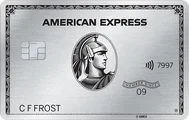
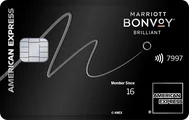

Top Offers
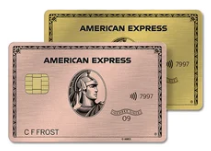

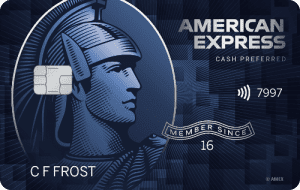
Top Offers From Our Partners
Does The Annual Fee Worth it?
Well, it depends. In case your card charges an annual fee, you should make sure your spending habits aligned with the rewards the card offers, and that you can cover the annual fee with the rewards you get.
For many consumers, a lack of an annual fee is an attractive feature of any credit card. Lenders have recognized this trend, and today, most cards do not have an annual fee. However, savvy consumers want more from their credit cards. In this chart created with US news data, you can see the percentage of no-annual fee cards by card type.
How Do You Redeem Your Points?
If you are thinking of how you can get a discount on your next purchase or how to save some money during the holidays, the solution may be in your rewards card. Some credit cards add a perk for their cardholders allowing them to shop online at select retailers and use their points to pay for their purchases in full or in part. Or, you can go by way of Gift Cards.
It is a popular way to redeem your credit card rewards because they are convenient and it's easy to determine the point-to-dollar value. Another popular use is to use your points to redeem airline tickets.
And whether your points are about to expire or you're switching credit cards, think about donating your points to a charitable cause rather than spending them on things you don't need.

Points Rewards Card Requirements
The bad news is, most point rewards credit cards require applicants to have good or excellent credit. And the best reward credit card programs are often exclusive to consumers with the best credit scores.
If you don't fall into these categories, you may not qualify for any reward credit cards. Some issuers reserve their best point rewards credit cards to those with “prime” credit score of at least 630 points. And of course, you shouldn't apply for any credit card if your credit score is very bad and you won't be able to pay your bills on time.
Mistakes To Avoid When Choosing a Points Rewards Card
Here are some of the main mistakes you should be aware of, especially if you want to avoid to spend more than you planned:
- Spend more to get additional rewards
Card companies are experts when it comes to selling their points program and making you spend more using your card to get more points. And they put expiry dates on your points to move you into trying to build up more points by spending more.
- Lesser options of rewards partners
Card issuers partner with retailers and other businesses to provide wider choices for your rewards. You can also earn bonus points when you buy from partner stores.

- Spending your points solely for merchandise
Most rewards cards will let you redeem your reward points in exchange for merchandise. You can get housewares or home electronic appliances for your points.
However, when you make some computations, you'll be able to see that the redemption values for these types of rewards purchases are disproportionate. In fact, they often pale when you compare them with travel rewards which have a higher value option.
- Paying interest on credit card debt
A credit card debt is probably the most common debt that the average person has. And this is on top of other debts that he might have. Point rewards can push you to spend more, and this is exactly what card companies want. They will make a lot of money off the interest that you will pay when you accumulate card debt.
But take note that points rewards credit cards have higher interest rates compared to your average card. The longer time it takes you to pay off your card debt, the more interest you will build up offer time.
What's The Average Credit Card Debt By Age?
In this chart using data from Urban Institute, you can see that the age group 43 to 47 carries the highest average credit card debt. This age group has almost double the credit card debt of their under 32 year old counterparts or seniors aged 68+.
- Maxing out your credit card limits
If you max out your credit card limit, you're exposing yourself to many financial risks. The more you charge, the more it becomes difficult to pay off the entire balance. If you exhaust your card limit, you won't have enough stand-by means in case you have an emergency.
Another thing is, maxing out your card increases your credit utilization ratio. Your credit utilization ratio shows the speed by which you amass credit card debt. A high ratio is detrimental to your credit score. Lenders do not like a borrower's ratio to be above 30%. So, if you max out your card, chances are, you will go over the 30% threshold.
Bottom Line
Not all rewards credit cards are the same. It's not a matter of looking for the right card for you but rather, looking for the best card for your situation. It should be one that would give you the highest reward value compared to other options. Once you have all this information on hand, you can make an intelligent decision on which point rewards credit card to get.
Top Offers



Top Offers



Top Offers From Our Partners
How We Picked The Best Rewards Credit Cards: Methodology
To identify the best rewards credit cards, our team conducted extensive research across a variety of issuers, including major banks, credit unions, and fintech companies. Independently, our experts meticulously analyzed data to rate these cards based on four key categories tailored for rewards enthusiasts:
Rewards Structure (40%): We evaluate the rewards program, including the type of rewards offered (cash back, points, or miles), earning rate per dollar spent, bonus categories for accelerated rewards, and flexibility in redemption options. Cards with higher rewards rates, diverse redemption choices, and valuable sign-up bonuses score higher in this category.
Features & Benefits (30%): This category assesses additional features that enhance the overall value of the card, such as introductory APR offers, absence of foreign transaction fees, complimentary airport lounge access, travel insurance coverage, and purchase protection. Cards offering a wide range of benefits without excessive fees earn higher scores.
User Experience (20%): We examine the ease of application, customer service quality, and online account management tools. Cards with user-friendly interfaces, responsive customer support, and convenient mobile apps or online portals receive higher ratings, ensuring a seamless experience for cardholders.
Issuer Reputation (10%): We scrutinize each issuer's reputation, considering customer feedback, financial stability, and regulatory standing. Issuers with positive reviews from cardholders and a track record of providing excellent rewards programs and customer service receive higher ratings in this category.
This comprehensive evaluation ensures that the best rewards credit cards offer valuable rewards, benefits, and a seamless user experience while maintaining a positive reputation in the industry, catering to the preferences of rewards enthusiasts.
* Eligibility and Benefit level varies by Card. Terms, Conditions, and Limitations Apply. Please visit americanexpress.com/benefitsguide for more details. Underwritten by Amex Assurance Company.

